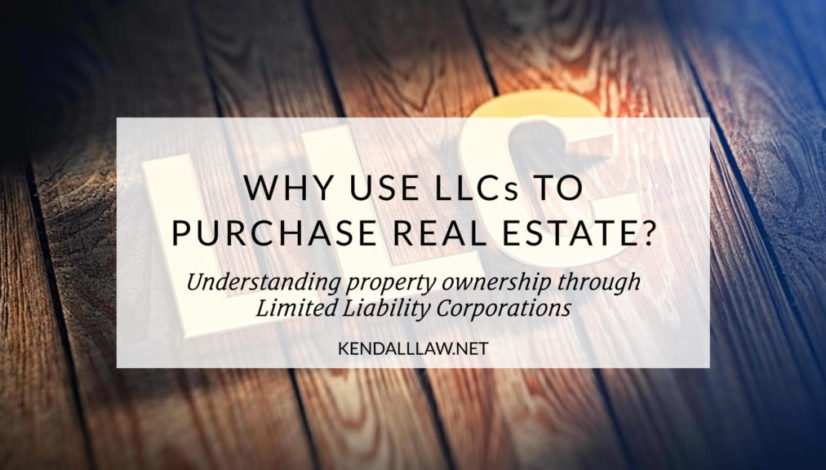Why use LLCs to purchase real estate?
We handle more than real estate law
My most recent posts have focused on real estate matters. Most of you probably know me through my various speaking engagements on risk management and laws that could affect real estate agents’ business. Most of you may not know that I also handle business disputes and litigation.
My Of Counsel Ryan Blaney helps our clients form business entities and review or draft a multitude of agreements. As the founder of Bolimini International, Ryan can also assist clients in creating and protecting their brand and making sure the business’ website complies with all applicable laws.
Purchasing property through an LLC
In this post, we\’re going to do a little cross-over of real estate and business and address using LLC’s to purchase real estate.
Why would you want to have commercial/rental real estate held by an LLC?
The main reason is to protect it from being used to satisfy judgments. Having the LLC hold title to real estate is particularly important for professionals like doctors, dentists, and lawyers so that the real estate cannot be used to satisfy a malpractice judgment that is in excess of his or her insurance coverage.
If considering purchasing property, particularly if it is investment property or commercial property, it is better to make the purchase in the name of the LLC instead of buying it in name of individual and later transferring it to the LLC.
There are several reasons why:
- Avoid potential claims under the Fraudulent Transfer Act. What is that? A transfer of property to an LLC can be deemed fraudulent if the debtor transfers the property with the intent to essentially hide the asset from the creditor and does so without receiving reasonable value for the transfer. The full Fraudulent Transfer Act can be found at Civil Code § 3439. If a Court finds that the transfer was fraudulent, it can void the transfer.
- The transfer could trigger an acceleration clause in the loan. The borrower/owner would need to check with the bank about the transfer before making the transfer.
- The transfer could trigger real estate transfer tax.
What can a creditor do to get a hold of LLC property to satisfy a judgment?
The only remedy that the creditor has to collect against an LLC is to obtain a charging order which allows the creditor to receive any distributions of profit and income. But that is only if distributions are made to the debtor member of the LLC. So, if there are no distributions, the creditor gets nothing. The creditor has no right to affect management of the LLC and cannot compel distributions.
Charging orders are not popular with creditors because interestingly enough, the taxation of income under a charging order could shift to the creditor and the creditor could be taxed on income that is recognized by the LLC but not distributed.
Get to know how an LLC works
For investors with more than one commercial or rental property, he or she should consider placing each property in a separate LLC. Separate LLCs protect LLC property from claims against other LLCs. The down side is the extra bookkeeping and more complicated tax reporting.
The protection of an LLC is not absolute. As I discuss in a prior blog post, creditors can try to “pierce the corporate veil”. If you want to know more about piercing the corporate veil you can check out my earlier blog post or contact us to assess your risk to liability.
If you are considering purchasing investment property and want to form an LLC to purchase the property, we can help. We can also assist in determining whether or not you should transfer current property to an LLC.
Author: Eileen Kendall





